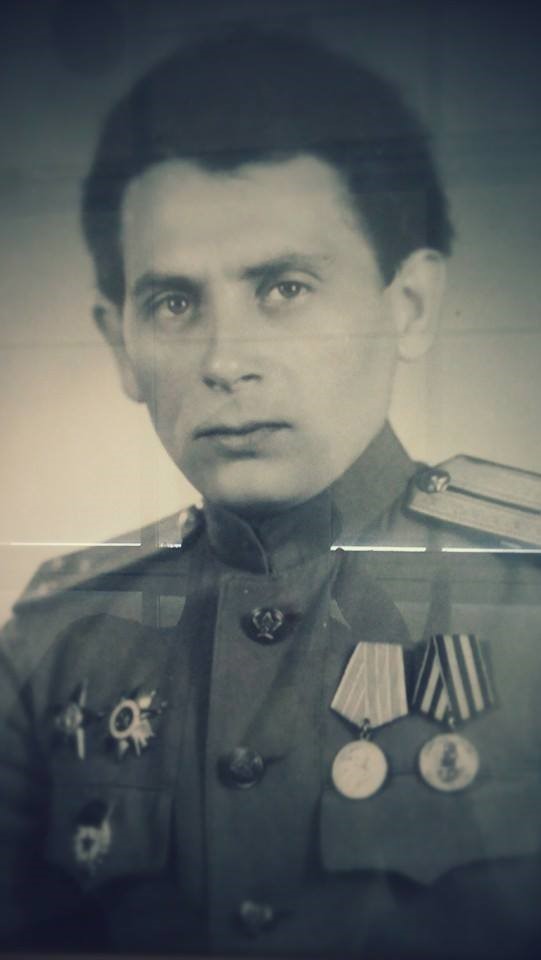Efim Grinshpon was born in 1917 in the town of Khoiniki, southeastern Belorussia. In 1939 he was drafted into the Red Army. With the beginning of Operation Barbarossa in June 1941, Grinshpon carried out administrative functions (organizing columns of troops to be sent to the front, etc.). Only in May 1942 was he himself sent to the front – assigned to the 38th Rifle Regiment, deployed on the Volkhov Front. There he served on the regiment's staff as an aide to the chief of staff for reconnaissance. In the summer of 1942, his regiment fought in the area of Miasnoi Bor, near Novgorod, in northwestern Russia. In October 1942, Grinshpon was promoted to the rank of lieutenant. In January 1944, he took part in the liberation of Novgorod, where he was wounded and after which he was awarded the Order of the Red Star. The citation for his award said: "In order to ascertain more precisely the location and grouping of enemy forces an enemy informer had to be captured, and Comr[ade]. Grinshpon carried out this task with honor. The captured prisoner provided essential information on the number of enemy forces and their weapons."
Later Grinshpon took part in fighting in the Soviet Arctic and, at the end of 1944, he was transferred to Poland as a military translator for the 314th Guards Rifle Regiment. In 1945, he took part in the capture of Danzig and Gdynia and was awarded the Order of the Patriotic War, 2nd Class.
Grinshpon ended the war in Stralsund, Germany. Until 1949 Senior Lieutenant Efim Grinshpon served in the Soviet commandant's office of Schwerin, also in Germany. Besides his two military orders, he was awarded several medals, including For the Defense of the Soviet Arctic.
Grinshpon's wife, Dania Grinshpon, was born in 1919 in the town of Kalinkovichi, 50 kilometers west of Khoiniki, Efim's hometown. She was drafted into the Red Army in May 1942, and served as a clerk in the 17th Airforce Training Regiment, deployed on the same Volkhov Front where Efim served. Later she served in the same capacity with other military units. She was released from the army in January 1945.
After his release from the army, Efim Grinshpon settled in Kalinkovichi, his wife's hometown. In March 1990, the Grinshpon family moved to Israel.
Jewish survivors in Poland
At the beginning of 1945, Grinshpon's regiment was stationed in the town of Ostrów Mazowiecka, eastern Poland.
"… I asked a Polish woman in the street, whether any Jews remained in the town. She answered: 'One family has survived, the family of a miller.' At the mill I found the owner, who from his appearance did not look Jewish. We began to talk, he had the same surname as me. He related a horrific story – about the fate of the town's Jews, and how his family hid throughout the war in the cellar of a Pole."[1]
Lea Gurevich et al., Gody frontovye 1941-1945 = Shnot ha-hazit 1941-1945. Beer-Sheva, 1999, p. 34.







